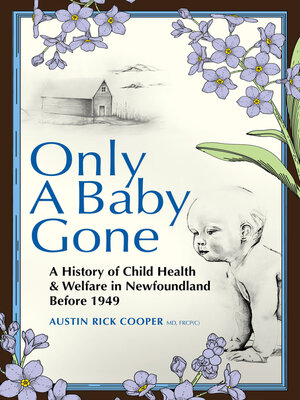
Sign up to save your library
With an OverDrive account, you can save your favorite libraries for at-a-glance information about availability. Find out more about OverDrive accounts.
Find this title in Libby, the library reading app by OverDrive.



Search for a digital library with this title
Title found at these libraries:
| Library Name | Distance |
|---|---|
| Loading... |
Pre-confederation Newfoundland was a challenging place to grow up, especially for children in low-income families.
Infectious diseases—including cholera, typhus, smallpox, tuberculosis, diphtheria, gastroenteritis, and whooping cough—circulated unchecked. Poverty, poor sanitation, ignorance, and isolation coupled with poor transportation compounded the effects of poor health. Health care was difficult to access, particularly in outport communities.
In Only a Baby Gone, pediatrician Rick Cooper explores these and other challenges, painting a somber picture of the early days of Newfoundland society.
Newfoundland only began recording the number of children who died in 1900, revealing a shockingly high mortality rate—significantly higher than that in the rest of Canada. Cooper investigates the reasons behind those numbers, placing them in historical and political context. Cooper's work is the first of its kind, the result of piecing together details found in community and family histories, anecdotal and primary sources, and in-depth reading of the scanty formal records. By shedding new light on the past, Only a Baby Gone offers important context for reflection on the health care challenges of the twenty-first century.







